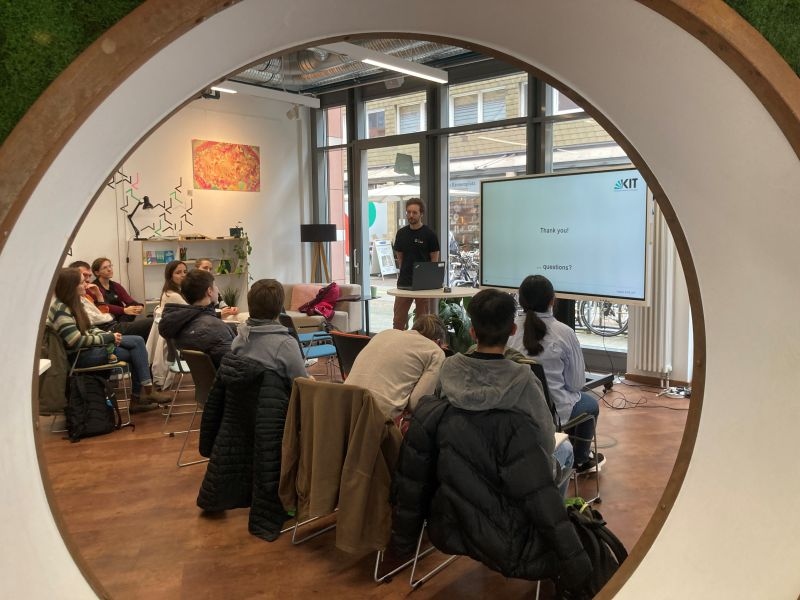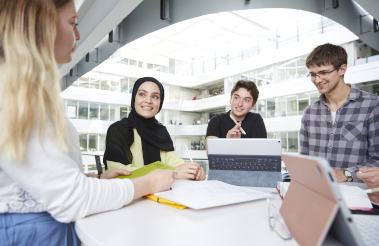KCDS Talks
"KCDS Talks" is a monthly series of short lectures from basic knowledge to trending topics in computational and data science. It's an opportunity to discuss and connect with KCDS Fellows. The talks are open to everyone interested without prior registration.
Join us at Triangel Studio (building 05.20 at Kronenplatz) and online: Zoom link Meeting-ID: 693 3178 1860; Password: E+Hmg@1.
Free snacks and drinks after the talks!

Date & Time
Thursday, 20 February 2025, 16:00-17:30h
Venue
Hybrid: Triangel Studio@Kronenplatz and Zoom

Date & Time
Wednesday, 22 January 2025
16:00-17:30h
Venue
Hybrid: Triangel Studio@Kronenplatz and Zoom

Date & Time
Tuesday, 12 December 2024
16:00-17:30h
Venue
Zoom

Date & Time
Friday, 29 November 2024, 16:00-17:30h
Venue
Hybrid: Triangel Studio@Kronenplatz and Zoom
| Name | Role at KCDS |
|---|---|
| Frank, Lukas | KCDS Fellow, member of Doctoral Researcher Representatives (DRR) 25/26 |
| Wolf, Dominik Werner | KCDS Fellow |
| 1 additional person visible within KIT only. | |

